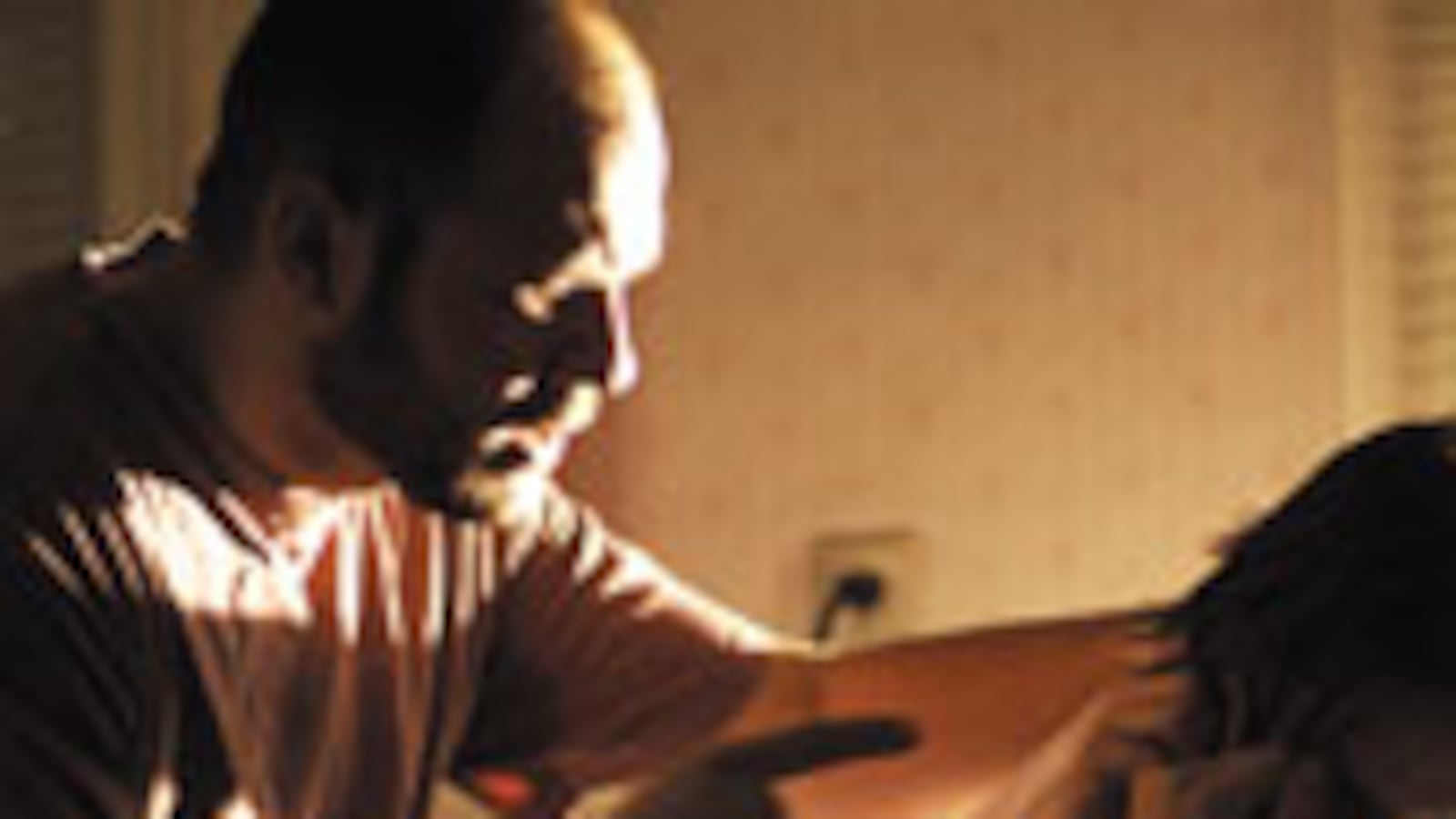
Like a lot of 14-year-old girls, all Shaquana wanted was a boyfriend. The skinny Brooklyn eighth grader was on the honor roll at school, but unhappy at home. She hadn't seen her father in years, and endured constant teasing about her looks by her siblings and verbal abuse from her strict, religious mother.
"I used to pray every night that God would make me prettier and give me a boyfriend," says Shaquana, now 20, who asked that her last name not be used for this story.
"It was so degrading," says one underage prostitute. "I felt like I was the only one my age who could possibly be doing this."
In the spring of 2004, her prayers were answered—or so she thought. Every day after school, as she walked to her job at a local farmer's market, she'd pass a guy who tried to get her attention. You're so cute, he'd tell her. Come here and talk to me. Shaquana ignored him for a while, but after a couple weeks, she relented. The two exchanged numbers and started talking on the phone. She told him she was 15; she thought he was probably about 17.
"He made me feel really comfortable," she remembers. Soon, they were meeting at the local park, then hanging out at his apartment, where he started to pressure her for sex. "I told him it was a sin, but he was like, 'I like you a lot, and if you like me you're gonna do it.' I thought that meant we would be together forever."
She was wrong. After they had sex a few times, he stopped calling, and told her to stop coming around. She was devastated, and finally went to his place to beg him to take her back. That's when he told her the truth: he was 26 years old—and a pimp.
"He said, 'I don't have time for little girls,'" she says. "He told me if I wanted to be with him I had to work for him, or just get lost. I was so focused on being with him that I said I would." Soon, Shaquana was going on "dates" he set up for her. He taught her how to perform oral sex, and strung her along, being nice one minute, manipulative the next. Shaquana says she felt completely trapped. "It was so degrading, and I felt like I was the only one my age who could possibly be doing this."
What Shaquana didn't know then was that, by some estimates, there may be as many as 100,000 underage kids involved in the sex trade in the United States. The issue of underage prostitution in the U.S. broke wide open last month when authorities say a young girl met football legend Lawrence Taylor in a New York motel room. Taylor, whose case will soon be presented to the grand jury, allegedly paid the 16-year-old runaway $300 for sex.
The girl's alleged pimp, a man named Rasheed Davis, has also been indicted on charges of sex trafficking. But Davis may have nothing to worry about. The fact is that the men who pimp and pay for sex with underage girls in America typically do so with little fear of being prosecuted.
Not that law enforcement and legislators haven't made some efforts. In September 2008, New York state passed the Safe Harbor Act, which mandates that any child 18 or under found to be selling sex should treated as a victim of trafficking. Just two weeks ago in New York City, the Brooklyn District Attorney's office announced that it was forming a special unit to combat sex trafficking after NYPD cops busted a group of men and women, several of whom were reportedly affiliated with the Bloods gang, for running a ring of child prostitutes recruited from local middle schools.
And in Washington State a new law mandates longer sentences for both johns and pimps who exploit underage prostitutes. On June 10, the punishment for paying for sex with someone under 18 went from a slap on the wrist to 21 to 27 months in prison, a $5,000 fine, and 15 years of sex offender registration. At the national level, too, the federally funded Innocence Lost National Initiative, has marshaled the efforts of 38 task forces and working groups around the country that focus on combating domestic child sex trafficking.
But a lack of laws and task forces isn't the problem. According to Loren Wohlgemuth of Shared Hope International, an advocacy group dedicated to eradicating underage sex trafficking, 44 states have "some" legislation about domestic minor sex trafficking, but most fail to address any kind of after-care for the victims. So even when arrests are made, such cases are still incredibly difficult to win, says Sean O'Donnell, a Washington State prosecutor. O'Donnell says "rampant" intimidation of witnesses and a lack of resources prevent authorities from punishing―and preventing―child sexual exploitation.
"I've seen mom's of pimps threaten girls," says O'Donnell. "I had one young witness flee to Louisiana. I had the FBI track her down, but once I brought her back here I didn't have anywhere to house her and she disappeared again. When we finally got her on the stand, she said, 'I'm not telling you a thing.' All that pressure on a 14 or 16 year old? It's extraordinary."
Yet another hurdle is the cultural glamorization of pimping. From the Oscar-nominated pimp-with-a-heart-of-gold flick Hustle & Flow to the fact that the very word "pimp" has become synonymous with "cool" in urban America, society treats child molesters as monsters, but glorifies the men who turn troubled children into money-making sex workers.
"You have self proclaimed pimps and drug dealers like Ice T, who capitalized on the lifestyle," says Jim Saleda of the Oakland Police Department in California, who has been working "the track"—the block or street where prostitutes operate—in that city for 10 years. "I find it ironic that he now makes a ton of money playing a sexual assault detective on Law and Order: SVU."
Meanwhile, the children themselves often become double victims: first of the pimps, and then of the justice system, where they face arrest and jail for consenting to sex for money—even though in most states children under 17 can't legally consent to sex at all.
"People look at a girl brought here from Korea as a victim, but a girl from the block, she's seen as a nasty girl, a dirty girl," says Muhammida El-Muhajir of GEMS, a non-profit group that provides housing and services to victims of child sexual exploitation in New York City.
To make things worse, pimping itself has been transformed from what Saleda calls "a gentleman's game"—a family business, of sorts, often passed down from father or uncle to son—into a particularly vicious branch of organized criminal activity.
In Oakland, for instance, police have observed the increasing involvement of gangs and drug dealers in underage prostitution, and with this, increasing violence against girls and among pimps. "Pimping young girls is a lot less risk and a lot less overhead than dealing dope," says Saleda, one of five city officers assigned to a unit focused on underage prostitution and Internet crimes against children. "The girl is the one that gets arrested, and she won't talk because it's built into them never to roll on their pimp. And it doesn't cost (the pimp) anything but a couple of fast-food meals a day and maybe getting their nails done."
Typically, say experts, pimps stay far away from girls when they go on appointments, knowing that when a girl is arrested she'll claim to be an independent worker. Because she's a minor, she's likely to be out of jail within 24 hours.
But perhaps the most difficult part of trying to prosecute a pimp is the fact that in order to prove a case, prosecutors almost always need the testimonies of the girls he trafficked.
This poses several problems. First, law enforcement needs to invest significant time and effort in building up enough trust to break the hold the pimp has on her. Second, the girl has to be kept away from the pimp, who may well be calling her from jail, or sending friends and family to, as Saleda puts it, "terrorize" her into recanting her statement.
And that itself is a challenge. Nationwide, there are fewer than 50 beds where girls can be kept safe as they either transition out of prostitution or wait to testify. All are run by non-profits.
"Prosecutors have a history of shying away from these cases because [the girls] don't always make great witnesses," concedes FBI Agent Michael Langeman, who has been with Innocence Lost for five years. "It can be hard to portray them as victims when they've become so hard."
Shaquana never testified against any of the men who turned her out, raped her, and even beat her so savagely she ended up in the hospital. What she did do, with the help of advocacy group GEMS, was escape the life, graduate high school as a valedictorian, enroll in college, and become an outreach worker, speaking at juvenile detention centers and group homes about her experiences.
"It was so easy for him to manipulate me," says Shaquana of her first pimp. "He was twice my age. And all those guys I slept with, they'd ask me how old I was and when I'd say 19, and they'd say, 'No you're not, you look 13.' They knew, and they went on and did their thing anyway."
Read a longer version of this story at TheCrimeReport.org
Julia Dahl is a freelance writer and contributing editor to The Crime Report.org. Her articles have appeared in the Boston Globe Sunday Magazine, Salon, The Columbia Journalism Review, Seventeen and O, the Oprah Magazine, among many others.






